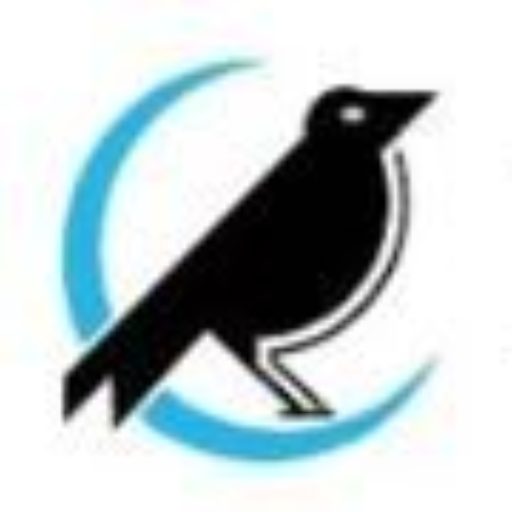1. We got SKILLS.
 HR needs to work harder than ever to find ways to support their people, reskill them and provide them viable opportunities to grow within the company. HR Technology that reduces the burden on HR and empowers employees to take control of their career journey has become highly relevant.
HR needs to work harder than ever to find ways to support their people, reskill them and provide them viable opportunities to grow within the company. HR Technology that reduces the burden on HR and empowers employees to take control of their career journey has become highly relevant.
Josh Bersin in his keynote said, “we’ve entered a world where employee skills, preferences, and day to day activities are under enormous stress. People work remotely, the quit rate is high, and companies are working harder than ever to find ways to support people, reskill them, and offer them new opportunities as the company grows.” (HR Executive, “Bersin: Skills and Talent Intel Dominate the HR Tech Market.“) To answer this call, we saw SAP SuccessFactors, Oracle Cloud HCM (Oracle ME) and Workday release product updates which anchor around employee skills assessment, development and internal career mobility. While this has been an area where standalone vendors like Fuel50, Gloat, Eightfold.Ai have begun, the major HCM solutions have now embedded extensive functionality within their suites.
“Today’s skills problem is important and complex, and it affects the job architecture inside a firm with new job titles that require the same skills,” he said. “We now have eight different job titles that all resemble the same role and skill requirement.” – Josh Bersin
2. Money, money, money.
 Investments in work tech are solid, and attendance (particularly from HR buyers) was much increased from last year. While it is yet to be seen how the recession and inflation pressures will impact HR tech spend in 2022, buyers were out shopping this year.
Investments in work tech are solid, and attendance (particularly from HR buyers) was much increased from last year. While it is yet to be seen how the recession and inflation pressures will impact HR tech spend in 2022, buyers were out shopping this year.
> “The money that some HR vendors raised in recent years often ranged between $70 million to more than $370 million. Access to equity has not been a problem in the HR space. One proof point of that alone is just to see the size and number of new vendors in the expo hall (in my estimate around 400 vendors).” – Brian Sommer (diginomica “HR Tech 2022 in review)
3. Don’t put the cart before the horse.
Successful transformations are tech-enabled, not tech-led.
 > “Before you jump into tech transformations, it always comes back to the processes.” – Dominick Pohlman, Sr. Director of HR Ops, Nordstrom (panel presentation recap by Mark Stelzner)
> “Before you jump into tech transformations, it always comes back to the processes.” – Dominick Pohlman, Sr. Director of HR Ops, Nordstrom (panel presentation recap by Mark Stelzner)
> “Love the advice to HR tech product vendors – stop selling functionality and focus on selling buyers on the problems your product actually solves” – @PeteTiliakos
>”Technology is only 10% of a digital transformation” – Jason Averbook, Leapgen (10 Skills to Transform in 2023 and Beyond)
> “In my research of big HR systems, the successful implementations were not tech projects but business transformation projects aimed at employees.” – Josh Bersin
4. Shocking data.
 Market research firm, Sapient Insights debuted their 25th annual HR Systems Survey Key Findings, using survey research from 2515 respondents. (Download the full results here.)
Market research firm, Sapient Insights debuted their 25th annual HR Systems Survey Key Findings, using survey research from 2515 respondents. (Download the full results here.)
Highlights:
> The “year of grace” that HR and tech buyers gave to vendors in light of the pandemic is over, said Stacey Harris, chief research officer for Sapient Insights. User Experience has dropped 7%. (CHROs to HR Tech Vendors: the ‘Year of Grace’ is over.)
>”There has been a 33% drop in HRIS professionals with 10 years of experience.
Some retired, some started companies, some went into a new industry or other job functions.
> “50% of time and payroll systems are at risk of flipping.”
>“There’s 150 nickel and dime comments” relative to satisfaction with providers and their UX”
>”0% of organizations are sending DEI metrics to leadership on a regular basis
5. Big fish swimming downstream.
Vendors otherwise focused on Enterprise / jumbo deals are now lasering-in on the Mid-market. Many vendors with the bulk of their revenues coming from customers with 5,000+ employees have modified their pricing and implementation strategies to cater to smaller organizations.
> 500-5,000 employee sized orgs “are the hottest market for a multitude of HR technology providers” – Sapient Insights
> “Of all HR vendors I spoke with, those that cater to this market really understand the importance of providing pre-integrated  solutions across their entire partner ecosystem and marketplace. Niche midmarket HR tools (e.g., I-9 verification) talk about their integration with midmarket HRMS suites and vice versa.” – Brian Sommer (diginomica “HR Tech 2022 in review)
solutions across their entire partner ecosystem and marketplace. Niche midmarket HR tools (e.g., I-9 verification) talk about their integration with midmarket HRMS suites and vice versa.” – Brian Sommer (diginomica “HR Tech 2022 in review)
6. The future as seen through Pitchfest.
33 aspiring startups pitched a panel of expert judges to show how their tools and business plan help improve the world of work. An Employee experience startup, SPOTLYFE, won the top prize. “Think of us like a check engine light in your car to help you prevent burnout in your life,” said Josh Schwede, co-founder and CEO of SPOTLYFE. SPOTLYFE’s Total Life Awareness Platform bridges an employee’s work life and self into a single view, offering people a chance to pause and assess their fulfillment in life. It then guides employees on a path of intentional daily micro-changes, helping them improve their lives one week at a time. – HR Executive Magazine, “Employee Experience Startup Takes Pitchfest Win
Wrapup
It was exciting to see so many innovations and the momentum that work tech is having to reshape the employee experience. These tools can be an enabler to true workplace transformation and increase employee engagement–as long as they are implemented well and adopted by stakeholders. I’ll look forward to seeing the impact and changes they make at next year’s conference.
 Bonnie Tinder was named a “Top 100 HR Tech Influencer in 2022” by HR Executive Magazine. For over 25 years, she has worked with top Software companies leading implementation, marketing and sales initiatives. In 2018, she founded Raven Intelligence—a peer review site for Enterprise Software Consulting, designed to help customers make a well-informed choice in an implementation partner. Raven Intelligence works with leading Systems Integrators and Software Vendors to understand and interpret the Voice of the Customer related to implementation and project success from an independent perspective.
Bonnie Tinder was named a “Top 100 HR Tech Influencer in 2022” by HR Executive Magazine. For over 25 years, she has worked with top Software companies leading implementation, marketing and sales initiatives. In 2018, she founded Raven Intelligence—a peer review site for Enterprise Software Consulting, designed to help customers make a well-informed choice in an implementation partner. Raven Intelligence works with leading Systems Integrators and Software Vendors to understand and interpret the Voice of the Customer related to implementation and project success from an independent perspective.
In building the Raven community, Bonnie has interviewed over 1,000 customers about their Enterprise Software implementation experiences and has produced several reports on the state of HCM implementation and software, which are available here.

